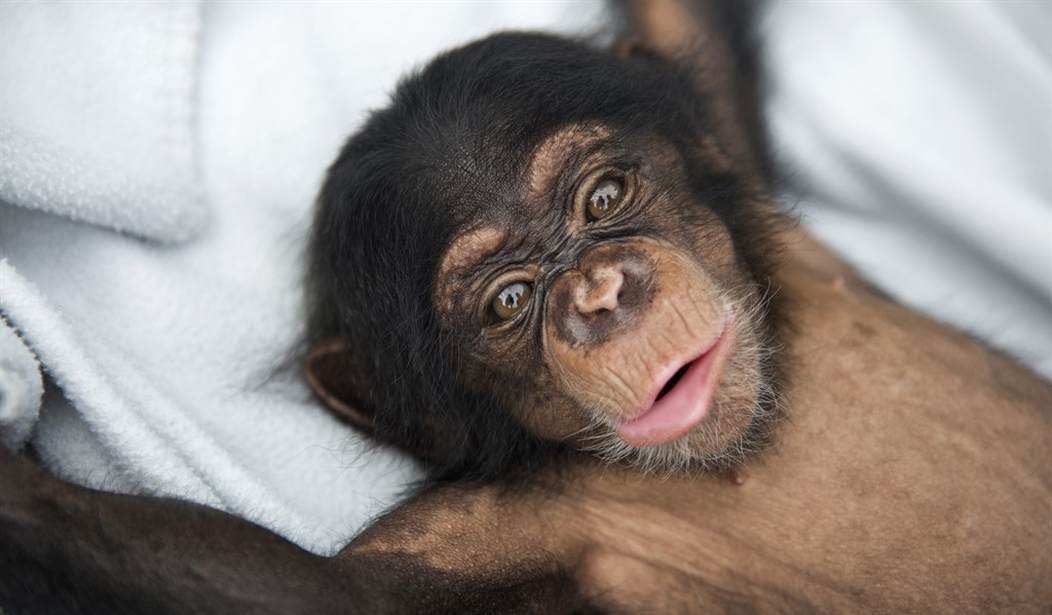People love their pets, and I would wager that the vast majority of pet owners treat their pets responsibly and realistically — as loved, cherished four-legged family members who aren’t the equivalent of children. But we’ve also seen people who take their love for their animals to mind-blowing heights.
I see people who think they have to take their dogs everywhere, even to the point of putting fake harnesses on dogs that are obviously not trained as service animals. I have a friend who takes her tiny dog almost everywhere, pushing him in a little stroller. She even brought him to Vacation Bible School this year while she served! And of course, we all know of “crazy cat ladies.”
There’s a subset of animal enthusiasts who operate on a totally different plane: chimpanzee owners. A new documentary from the producer-director of “Tiger King” looks at this world; “Chimp Crazy” focuses on Tonia Haddix, who lives at a chimpanzee facility in Missouri.
“Haddix, a 50-something woman who describes herself as the ‘Dolly Parton of Chimps,’ believes that God chose her to be a caretaker,” reports Amanda Hess in the New York Times. “She was a registered nurse before she became a live-in volunteer at a ramshackle chimp breeding facility in Missouri, where she speaks of a male chimp named Tonka as if she is his mother. Haddix also has two human children; she just loves them less, and says so on television.”
Apparently, as the show unfolds (I don’t have HBO, so I won’t get to see it), Haddix and her other chimp enthusiasts run afoul of local authorities and PETA. The documentary also shows instances where chimp ownership became dangerous.
Recommended: PETA Dances on the Grave of a Beloved Mascot
Hess explains that animal rights questions and psychological issues lay at the heart of these people’s lives:
As the series continues, it illuminates an underground network of chimp breeders and brokers. Brittany Peet, a lawyer for People for the Ethical Treatment of Animals, describes it as a “culture of almost entirely women who raise chimpanzees and monkeys as if they’re babies,” starkly lonely mother figures who mythologize apes as eternal children who never talk back, never mature and never leave.
Of course, chimps were not meant to live among people at all; it is only the cage that keeps them there. Again and again, “Chimp Crazy” shows how the human “love” of chimps leads to neglect, abuse, and violence. The series is about the folly of loosing a wild animal in the family, but it is also about the void in the family’s center.
Hess also mentions a recent feature on the New Yorker’s website that discussed “pet ethics.” The headlines for the articles on this page are all in the form of questions, and they reflect people’s over-the-top view of their animals as well as the modern tendency to overthink everything.
The feature includes links to articles asking questions like “Why Did I Stop Loving My Cat When I Had a Baby?” “I Am Not My Animal’s Owner. So What Am I?,” “Am I a Terrible Pet Parent?,” and my favorite, “Should I Give My Terrier ‘Experiences’?” The editors add to the overthinking by stating, “Behind each ethical question is a secret about ourselves.”
When I started writing this column, I didn’t intend to wax theological, but this confusion about the relationship between people and animals stems largely from people's disconnection from God. The Bible tells us that God made human beings in His image, and that sets us apart from the rest of creation—animals, plants, rocks, everything else. When people turn away from God, they also abandon the truth of creation order.
“When children are cast as lesser dogs, and dogs are mythologized as superior children — more fit for human social life than a whole class of people — I am not sure who wins, but I don’t think it’s the children or the pets,” Hess opines. “Often, children and pets circulate in these stories like phobic objects, sites of projection where adult humans dump our own unmet needs.”
“As Haddix positions herself to care for a succession of young chimps, she denies their pain and her own in order to fuel her fantasies of domestic bliss,” she adds.
Therein lies the problem with people who treat their pets on the same level as humans. Nobody can expect a pet to fulfill the same needs as a human relationship — or a relationship with God, for that matter. We can love our pets unconditionally and get untold hours of enjoyment from them, but they’re not our equals. We can’t forget that truth.
If you enjoy stories like these, please consider becoming a PJ Media VIP. VIP membership gives you access to exclusive content and helps us in our mission to report the truth. Use the code SAVEAMERICA for 50% off!










Join the conversation as a VIP Member